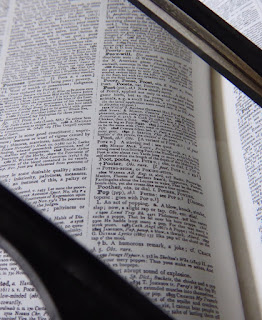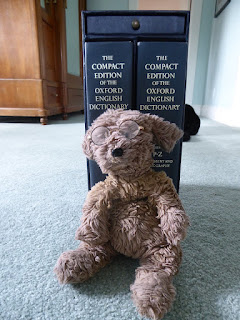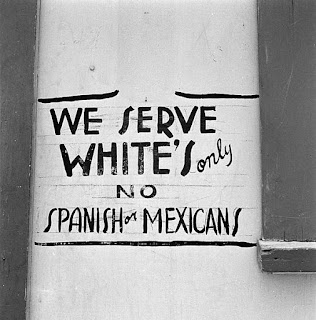 We’re all thinking too hard about what we say and how we say it. We have a wonderful language, English: it’s sly, it’s supple, it’s wieldy. But we’re larding it up.
We’re all thinking too hard about what we say and how we say it. We have a wonderful language, English: it’s sly, it’s supple, it’s wieldy. But we’re larding it up.
I get why. I understand that we might want to think a little more carefully about what our words really mean, or used to mean, or could be interpreted as meaning. And we certainly don’t want to offend inadvertently; another word for “politically correct” is, arguably, “considerate.” Maybe we can increase awareness with our word choices. That’s all good. So why does it sometimes make me want to drop some nice anvil-sized Anglo-Saxon chunk into my prose?
Take a recent article in The Oregonian. The headline refers to the “homeless.” A few phrases in and we’re talking about the “houseless.” Okay: point taken. Someone might very well consider his tent or station wagon his home, and we’re not here to shame. Later in the same article, it was “people experiencing homelessness.”
 This is where I start to feel prickly. I understand we need to avoid suggesting that homelessness in a person is a permanent or innate condition, although that is nothing I would have assumed, but we’re starting to grow barnacles of clauses on a perfectly understandable phrase. I personally don’t attach any more or less judgment on “homeless person” than “person experiencing homelessness,” and maybe some people do, but I think there’s some value to being able to toss off a sentence and get all the way to the end of it without sirens of righteousness going off. Can’t we just talk?
This is where I start to feel prickly. I understand we need to avoid suggesting that homelessness in a person is a permanent or innate condition, although that is nothing I would have assumed, but we’re starting to grow barnacles of clauses on a perfectly understandable phrase. I personally don’t attach any more or less judgment on “homeless person” than “person experiencing homelessness,” and maybe some people do, but I think there’s some value to being able to toss off a sentence and get all the way to the end of it without sirens of righteousness going off. Can’t we just talk?
People even overwork greetings. I’ve heard many fellow curmudgeons bristle at being told “No problem” when they thank someone. I never thought bringing me a cup of tea would be a problem…why can’t you just say ‘you’re welcome?’ Well shoot, sugar. It’s just a new convention. “You’re welcome” didn’t arise as a response to “Thank you” until 1907. Probably before that people said “It was my pleasure to be of service” or some such fanciness. “Goodbye” used to be “God be with ye,” but sometimes you just want to cut it short and walk off, okay?
 So why now do I keep hearing people tell me “Have a good rest of your day?” Do we really need to acknowledge that half the day is gone already and may or may not have been a good one but we sincerely hope that all goes well from now on? Is that really necessary? We’re overthinking this. I know people mean well, but this is English. The whole beauty of it is we have a gigantic unrivaled mongrel vocabulary and we can still be right snappy with it. We can herd bison with it or chase rabbits with it. We can fling it around any which way.
So why now do I keep hearing people tell me “Have a good rest of your day?” Do we really need to acknowledge that half the day is gone already and may or may not have been a good one but we sincerely hope that all goes well from now on? Is that really necessary? We’re overthinking this. I know people mean well, but this is English. The whole beauty of it is we have a gigantic unrivaled mongrel vocabulary and we can still be right snappy with it. We can herd bison with it or chase rabbits with it. We can fling it around any which way.
That’s why a phrase like “tiny-fingered tangerine shit gibbon” is so satisfying. If we spoke French, we’d have to sit through “Monkey with the long arms, of the fingers minuscule, of shit, orange.” If we were German, we’d cram the whole thing into one Capitalized word and glue it up with spittle. The first is like doing thrust-and-parry with a baguette: you’re pretty sure someone’s insulted you, but you’re also pretty confident you can take him. The second is like having a side of pork dropped on your head. It’s too much. English is spare and bright. English is punchy. We should celebrate that.
 |
| Apostrophe abuse is the least of our problems. |
And so I end with a small, bold suggestion. When I was growing up in the ’50s in Virginia, “colored people” was what the neighbor lady said when she was feeling polite about the Nigras. Obviously it had to go, and it did. We’ve cycled through a few ways of saying the same thing since then. Often as not, now, we say “people of color.” And that has expanded to include not only black people, but many more varieties of human, such as Latinos, or Pakistanis, or Pacific Islanders. Which makes it a pretty useful phrase, especially in an environment in which non-white people share common…concerns. Where they struggle to power through the rage and fear of a dying majority, and the scoundrels who exploit them for political gain.
But I submit “people of color” is clunky. We’re not French. It’s been at least forty years since I’ve heard anyone under the age of 80 call someone a “colored guy.” Seems to me the stain of derision has worn off. Is it still too soon to bring back “colored people?” Yes, it does imply that the default Person is white and everyone else has to lug around a bunch of modifiers, but so does “person of color.”
To my ear, now–not sixty years ago, but now–it has a warm, jolly sound. “White” is cold and bloodless and sterile, and the shoe fits, so I’ll have to wear it–but “colored people?” That’s a bowl of goodness. That’s sun and song and laughing on the front porch and fellowship and family and home cooking drifting from an open window. That’s community. And that’s English.
I have always disliked the phrase "people of color" because then I needed to accept those not of color must be transparent.
A lot of us are.
I used "people of all colors" the other day without any pre-planning – it just fit.
I absolutely detest the phrase "politically correct." I agree that the word "considerate" and even "empathetic" would cover it. The difference to me is that the PC word just sounds so cold and bloodless — as if you're doing the person you're referring to some big, freakin' favor. The other synonyms are at least actual words that describe the same thing, only without the superciliousness.
I don't like "colored" or "people of color" because of their implications of "white" being the norm. I vote for scrapping the whole "white" and "people of color" references and identify groups of people by cereals. "Whites" can be referred to as "Cheerios", and "people of color" as "Froot Loops" — which are basically Cheerios with various colors and a little pizzazz. "Trix" is also a possibility, as it is colorful, but a different shape, so it doesn't fit the analogy as well. People as a collective can be "Lucky Charms", as it has the blandly colored bits and the colorful bits together.
(I had to decide on cereal references via Google images, as I don't eat cereal except occasionally oatmeal.)
That, plus "politically correct" is always used derisively. If I'm going to be insulted, I want someone to put a little more effort into it.
I enjoyed the cereal analogy except "Fruit Loops" gives a suggestion that someone is loopy or not quite right in some way. And then we're not politically correct, again.
"Flakes" is problematic also.
With further "research", I have found that "Kix" cereal is uniformly bland in color, where "Trix" is colorful but the same round shape. They have the virtue of rhyming as well.
(This is the sort of minutia that consumes me when I've had coffee — which I ordinarily do not drink.)
We were a Kix and Cheerio family. I'd forgotten about Kix. What did I just hear about original Cheerios? They taste like paper.
I am not sure, Murr, if I should mention, in the kindest way possible, that I, too, have heard buffalo — most memorably in the movie Dances With Wolves when they thundered over the top of the sod roofed house, triggering a shower of dirt. Tatanka!
Oh my–I read that to myself, read it out loud to my husband, and still had to go back and check. You sharp-eyed Susan, you!
I cannot beLIEVE that slipped by my eyes, although things like that totally slip through my fingers. (I type fast and sometimes I find myself spelling "one" with a "w," for instance. Thanks dear! Fixed!
Heh – it's a measure of Murr's creative use of the language that I saw that and didn't want to mention it in case I was missing a double meaning! lol
Aww, you could have left it…now my comment will never make sense.:-)
It will to me. I couldn't LEAVE it, now…thanks again!
"Tiny-fingered tangerine shit gibbon", hmm. When did calling someone a gibbon become an insult? They are elegant singing arborealists and are nothing like the corpulent heap currently occupying 1600 Pennsylvannia Avenue.
Wasn't it weird that he took up against energy-efficient light bulbs by claiming they make him look orange?
Uh, that question "when did gibbon become an insult" has an actual answer. I can't remember just what it was, but "shit gibbon" was first uttered sometime around 1978. It's look upable.
Love the whole piece. Guess I’ll go ask some varied-color acquaintances their preferences!
Yeah, don't imagine I'm the one to decide. I just thought I'd put it out there.
Clumsy as the phrase is I am (mostly) politically correct. I do read it as being considerate, and object to the people who have tarred it with a different brush. I haven't yet come across the homeless incarnation though and will talk to those I support and see what their take on the phrase is. And what they prefer.
I'm just over-claused.
Well, YES! Right from the start, I have always thought that "People of Color" sounded simultaneously awkward and pretentious — and therefore downright comical. And you also hit the nail on the head when you explained that 'colored people' was used in Polite Society. (Goodness knows, it was Poor White Trash down in the trailer park off of Route 1 that probably used the coarser, N-word.) As far as the 'homeless' issue is concerned, what ever happened to 'hobo'?
I always think of "hobo" as being a specific kind of homeless–traveling homeless. On the rails. I haven't looked it up but that's my take.
you're correct about "hobo" also called "tramps" many years ago as they tramped from one location to another, taking a job now and then where they could find it, but that was their chosen lifestyle, so they aren't counted among today's homeless who are often victims of circumstances not of their own choosing.
The "poor white trash" description bothers me; it sounds as if poor trash is by default a color. Not white.
Actually, a tramp is different from a hobo, according to the Osher class I took. A hobo was a migrant worker, riding the rails looking for work (they also had a union), a tramp worked only when needed, and a bum didn't work. There's still a hobo convention annually in Britt, Iowa.
Sheila
And now you have me thinking…..we *do* see a resurgence in the use of "queer", which is something I seem to be quite comfortable with. What does that say about all this?
Ah, but the ones being targeted with that epitaph grabbed it as it was flung, spun it 180 degrees, claimed it as theirs and proclaimed it with pride. "We're here, we're queer…!" Best comeback to haters, every time.
All true. And the same goes for my black neighbors calling each other niggas, and I get it, but I just can't stand it. Not for me to judge, but it's just too visceral for me.
I'm a "no problem" bristler, I confess. My first reaction (which I try to keep to myself) is always 'this IS normally a problem for you, though? Perhaps you're in the wrong line of work?'
In the same line (usually the one at the take-out window), I try very hard to answer the server's (infrequent) "Thank you" with my own "You're welcome", instead of the knee-jerk thank-you in return. Helps to remind them who's providing the service, and who's providing the custom.
Here's the current lineup in food service:
I order. Server says "Perfect."
Servers comes back and says "How's everything tasting for you tonight?"
I pay up and the server says "Have a nice rest of your day."
I hate when food servers, HVAC guys… you name it… say "Awesome" when I decide on something. It bastardizes the word — which used to mean extremely impressive or daunting, inspiring awe. Now, apparently, if just means "very good." Don't we already have enough words to cover that? No, guys, it is NOT awesome that I've decided to have the lasagne. It may be a relief that an indecisive person like me has made a decision at all, but "awesome" is a bit of a stretch.
It's "perfect" now. Rest easy.
When I went to the UK and said "thank you," I assumed that they, the British, would be unfailingly correct and say, "You're welcome." Nope, they said "Not a problem."
I actually object to "white" as that is also a colour and many "white" people aren't exactly paper white are they? Some are a pale beige, some are pink, some tan through summer and fade through winter. Far better I think to use the "racial" terms of Caucasian, Negroid, Asian and so on. Or skip all that and call ourselves and everyone else, multi-coloured.
I'm speckled and mottly. I'm keeping out of this.
My husband has a ruddy complexion. I call him a "Lobster-American."
"All people are colored. Otherwise you can't see 'em." Don Van Vliet (Captain Beefheart)
I almost mentioned that earlier. And I DID know who said it! (A favorite of mine)
I suggest calling people of color "brownies." Almost everyone likes brownies and they are always a joy to have around. Sometimes they have other enhancing ingredients in them which may arguably make them better or more interesting.
When I am part of a group that quotes Captain Beefheart I get such a smile and a case of warm fuzzies! I will have a smile on my face all day!
If you're not familiar with Mallard (the band), look them up!
heh heh, you said fling.
That counts?
yes, indeedy
Forex Trading Awards: 6 Reasons Why They Don't Work & What You Can Do About It https://www.reviewengin.com/nd10x-review/
I'm truly working to get past bristling at hearing "No problem" instead of "You're welcome," but my all-time favorite response in this situation was made by a laid-back park ranger in Mesa Verde, who responded, "All goodness!"
I admit, I have a tremendous sex drive. My boyfriend lives forty miles away. Click here and Check me out i am getting naked here 😉